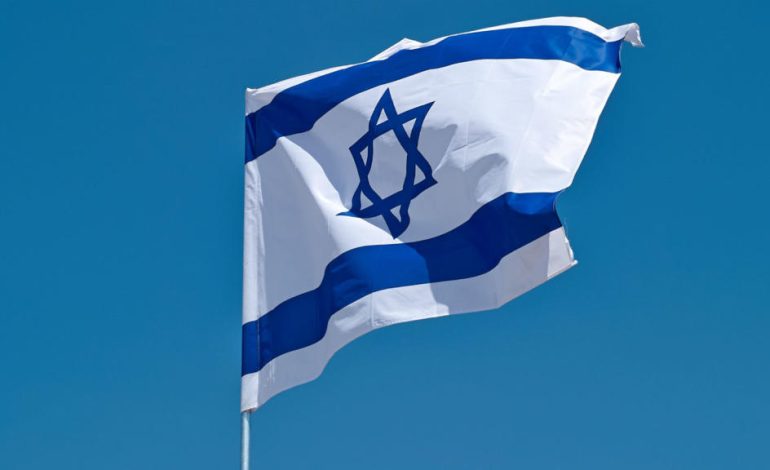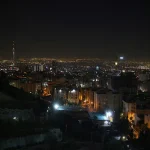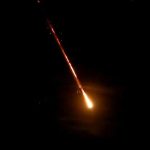Israel Launches Air Strikes On Beirut

Lebanon’s capital, Beirut, witnessed intense Israeli air strikes targeting Hezbollah strongholds early Sunday, marking a significant escalation ahead of the one-year anniversary of the Gaza war.
The strikes, which hit multiple locations, including a petrol station, sent massive plumes of smoke into the air and triggered widespread panic.
According to Lebanon’s National News Agency, over 30 strikes pounded Hezbollah-controlled areas in south Beirut, forcing thousands to flee.
The Israeli military claimed it targeted weapons storage facilities and infrastructure, emphasizing measures to minimize civilian harm.
Hezbollah responded with artillery fire, targeting Israeli forces near the Lebanon-Israel border. The group also launched assault drones against an Israeli military base.
READ ALSO
•How Isreal Killed Hassan Nasrallah_s Hezbollah
•Tinubu, Adeleke At Loggerhead Over Shutdown Of Segilola Mining Company
“We are prepared with increased forces in anticipation for this day”, when there could be “attacks on the home front”, Israeli military spokesman Rear Admiral Daniel Hagari said at a televised briefing.
Last year’s unprecedented October 7 attack on Israel by Palestinian militants resulted in the deaths of 1,205 people, mostly civilians, according to an AFP tally based on Israeli official figures that include hostages killed in captivity.
Israel’s President Isaac Herzog called Iran an “ongoing threat” after Tehran, which backs armed groups across the Middle East, on Tuesday launched around 200 missiles at Israel in revenge for Israeli killings of militant leaders including Hezbollah chief Hassan Nasrallah.
“Israel has the duty and the right to defend itself and to respond to these attacks and that is what we will do,” Prime Minister Benjamin Netanyahu said in a statement.
Netanyahu’s critics accuse him of obstructing efforts to reach a Gaza ceasefire and deal to free hostages still held by Hamas.
A senior Hezbollah source said Saturday the group had lost contact with Hashem Safieddine, widely tipped to be the next Hezbollah leader, after airstrikes in Beirut.
Iran’s supreme leader Ayatollah Ali Khamenei said on Friday that “the resistance in the region will not back down”.
Late Saturday Israel issued a new order for residents of southern Beirut to evacuate.
Across Lebanon, strikes against Hezbollah have killed more than 1,110 people since September 23, according to a tally based on official figures.
UN’s refugee agency head Filippo Grandi said Lebanon “faces a terrible crisis” and warned “hundreds of thousands of people are left destitute or displaced by Israeli air strikes”.
Israeli bombardment has put at least four hospitals in Lebanon out of service, the facilities said.
The UN peacekeeping force in Lebanon said it rejected a request by the Israeli military to “relocate some of our positions” in south Lebanon.
Iran’s Foreign Minister Abbas Araghchi, in Damascus Saturday after visiting Beirut, renewed his call for ceasefires in both Gaza and Lebanon, while threatening Israel with an “even stronger” reaction to any attack on Iran.
French President Emmanuel Macron said it was time “that we stop delivering weapons to fight in Gaza” and criticized Israel’s decision to send ground troops into Lebanon.
US, Qatari, and Egyptian mediators tried unsuccessfully for months to reach a Gaza truce and secure the release of 97 hostages still held there.
Gaza’s civil defence agency said Sunday an Israeli strike on a mosque-turned-shelter in central Deir al-Balah killed 21 people, while Israel’s military said it had targeted Hamas militants.
Israel’s retaliatory military offensive has killed at least 41,825 people in Gaza, the majority of them civilians, according to figures provided by the Hamas-run territory’s health ministry and described as reliable by the UN.
Ahead of the October 7 anniversary, thousands joined pro-Palestinian rallies in London, Paris, Cape Town, and other cities.
Israel’s President Herzog said his country’s October 7 “wounds still cannot fully heal”.

Titilope Adako is a talented and intrepid journalist, dedicated to shedding light on the untold stories of Osun State and Nigeria. Through incisive reporting, she tackles a broad spectrum of topics, from politics and social justice to culture and entertainment, with a commitment to accuracy, empathy, and inspiring positive change.









